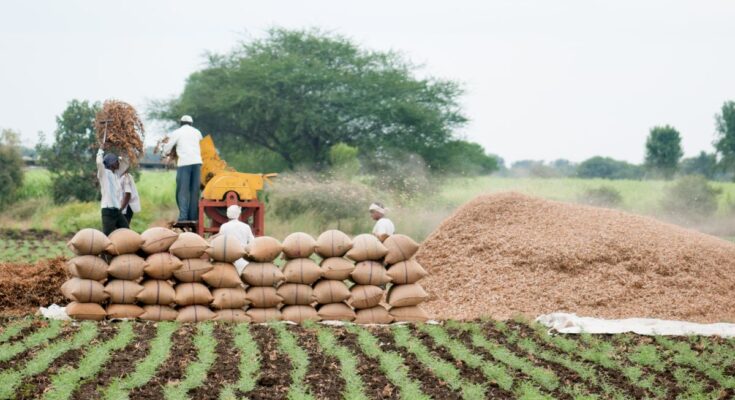Over the past few weeks, much has been written on the newly enacted farm laws, which have been termed “historic” by the proponents while “death warrant” for farmers by the opposition groups. The issues of contention range from the removal of commission agents, entry of private players, absence of price fixation mechanism among others.
For decades, the majority of farmers have been living under abject poverty due to a range of complex problems. However, low productivity and subsequent inadequate farm remuneration are the crucial reasons. In the past, farmers often complained about the exploitation by commission agent or middlemen in the APMC (Agriculture Produce Market Committee) mandis. Farmers struggled to get remunerative prices even for those agriculture commodities, for which Minimum Support Prices (MSP) were declared by the government.
Therefore, it was imperative for farmers to have different options. And the new farm laws provide the required platform to fetch the right remunerative to any buyer they want to sell their produce. Through the laws, the government has enabled farmers and given them the independence to sell their produce to whoever and wherever they want. Indian agriculture will witness a massive transformation. With changing farm dynamics, farmers will have to harness new technology, remain updated of market information, pool their lands.
Quality of produce and output are major concerns when it comes to Indian agriculture. Our farmers are still stuck with the traditional farming practices, and smaller landholdings appears to be one of the major factors. Over 86 percent of farmers own not more than two hectare land while the average landholding keeps on shrinking. It reduced to 1.1 hectare in 2015-16 from 1.16 hectare three years ago. Small landholdings bring limitations on farmers’ capacity to invest in better crop inputs and access advanced machinery.
Faced with the challenges of landholding, finding the right buyer and right price, issues with transportation made them vulnerable and were over dependent on the middlemen. With the new laws, farmers now have the free hand to choose their buyer, who they want to be in contract and what they want to grow. Besides, APMC mandis will still be operational, therefore, the farmers have multiple options to sell their produce.
Interestingly, the Farmers (Empowerment and Protection) Agreement on Price Assurance and Farm Services Act 2020, facilitates farmers to enter into farming contracts with FMCG companies, large-retailers, wholesalers, agri-food businesses for farm services and sale of future agri produce at the pre-fixed rates. Though at small scale, India has seen successful contract farming examples in the recent past. Now farmers can expect protection from the vagaries of daily price changes in the local markets.
The government’s decision to free India’s agricultural market – a long pending reform – is expected to revive India’s weak agriculture sector and private investment. Big corporate-owned entities can now procure directly from farmers and be motivated to build cold storages, warehouses and food processing units.
On the other hand, farmers will now have to ensure what they produce is of optimum quality and meets the prescribed standards. It will be pertinent for farmers to choose good quality seeds so they cultivate healthy and nutritional crops. This will open new avenues for them to trade their commodities and attract more investment.
Under the concept of land pooling, different farmers can come together and join hands with private companies to cultivate particular crop on a consolidated land area. It would certainly increase crop productivity through operational efficiency using technological solutions and scientific methods of farming. Mobile technology has reached in almost every corner of the country and many farmers use smart phones. It offers farmers resources to analyse trends in agriculture markets, decide on crops to be cultivated and choose markets where prices are best.
I believe the new farm Laws herald a new era for Indian agriculture and farmers must strive hard to gain maximum benefits. The country needs financial sustainability for farmers, which will result in making agriculture a success. It is laudable that government has retained all mix be it APMC, open market and MSP. It will only create competitiveness, with consumers realising quality food and farmers their profit.
(Views expressed in the article are author’s own.)




